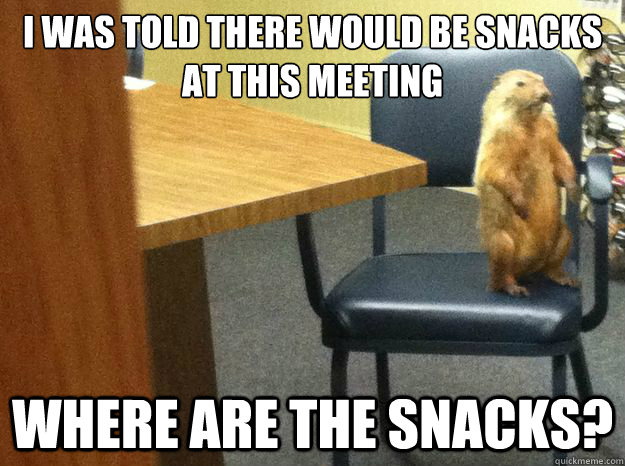Poor Board Members. Here they are: generously donating their time, taking on personal responsibility and haranguing their contacts for money; and here we are: picking on them again. They're always the fall guy. And while we are fierce defenders of Boards and understand their foundational place within an organization (like this article here), if you talk to non-executive staff of a nonprofit organization and ask them their perceptions of their Boards, you might be surprised at the number of blank stares or rolled eyes you get.
And it's not fair, but let's be honest: Bad perceptions of the Board of Directors aren't totally unfair either. While nonprofit Boards don't (or at least definitely shouldn't) follow their for-profit counterparts with lavish retreats and personal perks, they do have some bad habits that can earn them a little bad press.
Some of these habits are just a little on the uncouth side, but some are downright unforgivable. Feeling nervous? Are you engaging in these 5 bad behaviors of nonprofit Board members?
1. They Eat For Free
There's no arguing the point that Board members bring incredibly valuable skills to the table. But let's be honest about it - that's the minimum standard. And not only are you supposed to be bringing your talent, you've got to have the financial capacity and willingness to (at the absolute minimum) pay for your own meal. There is no shortage of irony for the Board of Directors that sits around a table discussing budget shortfalls while dining on the nonprofit's tab. You know better. Collect $15 from each Board member at group meals, or ask for a yearly Board cash contribution to cover the costs of meals and retreats throughout the year.
2. They Won't Hit Up Their Friends
We've talked a bit before about the 'Field of Dreams' mentality that seems pervasive in the nonprofit boardroom, but somehow that doesn't seem to always translate. When it comes down to it, Board members need to be the first, last and best advocates and connectors of your organization. So when a nonprofit creates an event, webpage, newsletter, social media campaign or any effort to raise awareness and/or funds, it is incumbant on Board members to personally and continually ask their OWN contacts and companies first (and the contacts to ask). If you're not willing or able to ask your contacts on behalf of your organization, why are you on the Board?
3. They Don't Read The Reports
If your Board meetings are boring, there's no time for building. If your Board hasn't adopted the practice of a consent agenda, you need to now. Not only does it cut down on time, it ensures that everyone comes to the table briefed and ready to work. This means that Board members need to read every report in advance of the meeting and come prepared to talk about the most pressing and important issues in the organization. See? Good news, we're saving you time AND giving you a fix for long meetings.
4. They Hire Consultants Instead Of Employees
We bet you're surprised to see this on a consultant's blog, but the truth of the matter is that consultants and employees are used a little too interchangeably within the nonprofit sector. Consultants should serve a temporary or specialized need. They should be independent, autonomous, and have other clients aside from your organization. Don't use the term 'consultant' to get around payroll taxes or workpace benefits or to try and artificially lower your overhead costs. When you have a long-term consultant serving a consistant and revolving need within the organization, it's time to re-examine that vernacular (and your HR practices.)
5. They're Too Busy
We understand. We're all busy. But Board members who can never find time for a meeting, show up to program events, or are only ever available to meet by phone simply don't have the time to be on a Board - or maybe a specific Board. While we all have our periods of intense seasonal work demands (we're looking at you CPA's) or unmoveable court appearance (you too, attorneys) in general, being a Board member means being an advisor and an advocate to an organization. Show up. Board members should expect to meet in person (barring national boards) a minimum of quarterly. If you can't make that commitment, consider moving to a committee placement instead.
NEED MORE BOARD MEMBERS? Look into our Board Matchmaking Service
WANT HELP WITH ORGANIZATIONAL PLANNING? Strategy Is Up Our Alley
LOOKING FOR A NEW PLACE TO HOST YOUR NEXT BOARD MEETING? Our Office Was Built For That

